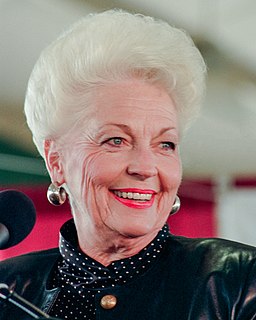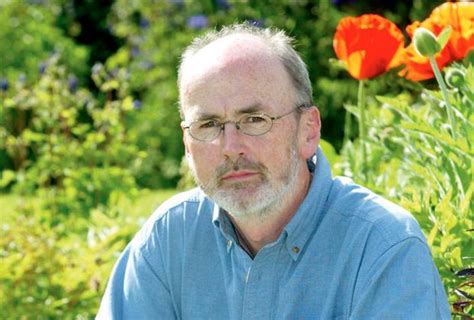A Quote by Dorothy Parker
Perhaps it suddenly brought to us the sense of change. Or irresponsibility. But don't forget that, though the people in the twenties seemed like flops, they weren't. Fitzgerald, the rest of them, reckless as they were, drinkers as they were, they worked damn hard and all the time.
Related Quotes
I'm really glad that our young people missed the Depression and missed the great big war. But I do regret that they missed the leaders that I knew, leaders who told us when things were tough and that we'd have to sacrifice, and that these difficulties might last awhile. They didn't tell us things were hard for us because we were different, or isolated, or special interests. They brought us together and they gave us a sense of national purpose.
It's hard for us sophisticates to believe, but the people my parents worked for were good people. They were socialists of the heart. They were Scottish upper class. I don't think they had political theories in the way my lefty friends in New York do but they did all the things that socialists do. My mother was the Jewish cook from Vienna and they would say, "Come and have dinner with us." I spent weekends with them. Who does that? This is Utopia.
It was as if we were at the heart of a maze. We were overwhelmed by the enormity of the tasks ahead. Mary had given us a bottle of milk and a spoonful of loose tea, and so, unable to decide what to do, we did what all Irish men and women do: we had tea. Suddenly the sun appeared and not for the first or last time we felt it uplifting us and changing everything. It seemed like a holiday.
He felt as though he were failing in practically every area of his life. Lately, happiness seemed as distant and unattainable to him as space travel. He hadn't always felt this way. There had been a long period of time during which he remembered being very happy. But things change. People change. Change was one of the inevitable laws of nature, exacting its toll on people's lives. Mistakes are made, regrets form, and all that was left were repercussions that made something as simple as rising from the bed seem almost laborious.
I was neurotic for years. I was anxious and depressed and selfish. Everyone kept telling me to change. I resented them and I agreed with them, and I wanted to change, but simply couldn't, no matter how hard I tried. Then one day someone said to me, Don't change. I love you just as you are. Those words were music to my ears: Don't change, Don't change. Don't change . . . I love you as you are. I relaxed. I came alive. And suddenly I changed!
When I worked with General Electric, again this was soon after the Second World War, you know, I was keeping up with new developments and they showed me a milling machine and this thing worked by punch cards - that's where computers were at that time, and everybody was sort of sheepish about how well this thing worked because in those days machinists were treated as though they were great musicians because they were virtuosos on these machines.
The place resembled a new model prison, or one that had achieved a provisional utopia after principled revolt, or maybe a homeless shelter for people with liberal arts degrees. The cages brought to mind those labs with their death-fuming vents near my college studio. These kids were part of some great experiment. It was maybe the same one in which I'd once been a subject. Unlike me, though, or the guinea pigs and hares, they were happy, or seemed happy, or were blogging about how they seemed happy.







































